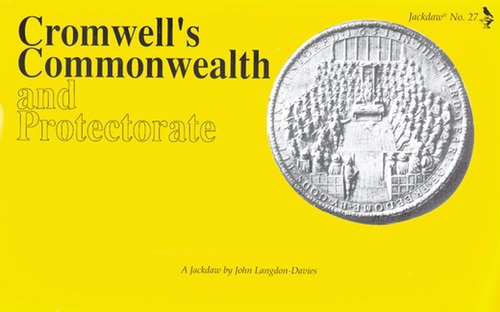
Cromwell's Commonwealth and Protectorate
For eleven years, from 1649 to 1660, England had no king, and the man who led the country was Oliver Cromwell. From a gentleman yeoman who reluctantly went into Parliament to support the ideals of the "good men," this dynamic man became ruler of England. It was a period of revolution and change, with the destruction of the monarchy, the setting up of the Crowell Protectorate, and rebellion in Ireland and Scotland where Cromwell was hated. Even his enemies had to acknowledge, however, that his achievements during this difficult time (the only period in which England was a republic) were outstanding. John Milton, the poet, described Cromwell's beliefs when he wrote "No man who knows aught, can be so stupid to deny that all men naturally were born free." This primary source portfolio explores the history of conflict and contradictions in Cromwell's fight for freedom and his ideals. Included is a Study Guide with reproducible student activities. 7 Illustrated Broadsheet Essays: * The "Cruel Necessity" and After * The Protectoriate * Honest John * John Milton * Ireland and Scotland * Abroad * The End of it All 10 Primary Source Documents: * Cromwell trampling on Error and Faction, an allegorical engraving * Public letter to Oliver Cromwell from John Lilburne and Richard Overton, 1649 * "Strange Predictions," a contemporary ballad sheet * Pages from the journal of the House of Commons recording the dismissal of the Long Parliament * Letter from Oliver Cromwell to Praise-God Barebone * Petition from John Milton to the Commissioners for Sequestration * "A Looking-Glasse for a Drunkard," a broadside * "Dr Dorslaw's Ghost, Presented by Time to un-mask the Vizards of the Hollanders," a broadside * "A List of all the Victories, and Successful Achievements of the Parliament's fleet," a broadside * A pack a royalist playing cards satirizing the Commonwealth and its leaders








